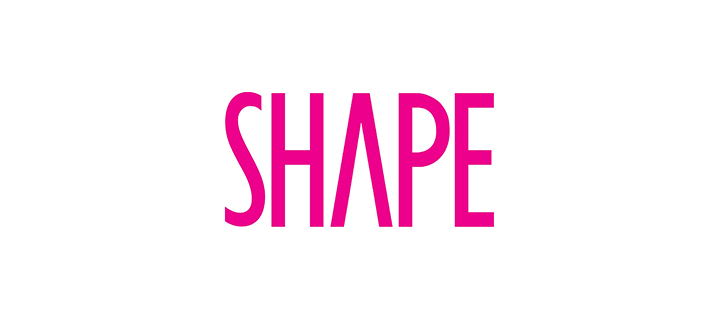The Stigma Around Psychiatric Medication Is Forcing People to Suffer In Silence
Introduction
Psychiatric medication plays a crucial role in managing mental health conditions. However, the stigma surrounding these medications often leads to individuals suffering in silence, hesitant to seek the help they need. Due to what is stigma. This stigma, characterized by negative attitudes, stereotypes, and discrimination towards mental health treatments, creates barriers to accessing appropriate care and support. It can also contribute to feelings of shame, isolation, and reluctance to discuss mental health openly. Overcoming stigma requires education, advocacy, and promoting understanding and acceptance of mental health challenges and treatments. By addressing what is stigma directly, we can create a more supportive and compassionate environment for individuals seeking mental health support.

Breaking the Stigma: Empowering Mental Health Through Proper Medication
Understanding the Stigma
The stigma associated with psychiatric medication has deep roots, stemming from historical misunderstandings and societal biases. This stigma contributes to the negative perception of mental health treatment.
One common misconception is that psychiatric medication is harmful or addictive. In reality, when used correctly and under professional guidance, these medications can significantly improve quality of life without severe side effects.
Effects of Stigma on Treatment Adherence
The fear of being judged or labeled as “mentally ill” prevents many individuals from adhering to their treatment plans. This fear often leads to discontinuation of medication, worsening symptoms, and decreased overall well-being.

Overcoming Stigma: Embracing Mental Health Treatment for Better Well-being
Breaking the Silence on Stigma
Encouraging open conversations about mental health and medication is key to reducing stigma. By sharing personal experiences and fostering understanding, we can create a more supportive environment for those struggling with mental health conditions.
Promoting Mental Health Awareness to Combat Stigma
Education plays a crucial role in dispelling myths and promoting acceptance to combat stigma. Advocating for mental health rights ensures that individuals have access to appropriate treatment without fear of discrimination.
Overcoming Stigma in Communities
Community support groups and initiatives help combat stigma at the grassroots level. Addressing cultural attitudes towards medication is also essential in creating inclusive and empathetic communities.

Building Supportive Communities: Fighting Stigma Through Unity and Understanding”
Conclusion
While the stigma around psychiatric medication persists, progress is being made in raising awareness and promoting acceptance. By working together to challenge misconceptions and provide support, we can create a more compassionate society for all individuals.
FAQs
1 Can psychiatric medication cure mental health disorders?
Psychiatric medication can help manage symptoms but is not a cure for mental health disorders. It is often used in conjunction with therapy and lifestyle changes for optimal results.
2 Are there alternatives to psychiatric medication?
Yes, alternatives such as therapy, lifestyle modifications, and holistic approaches can complement or sometimes replace psychiatric medication depending on individual needs and preferences.
3 What are the common side effects of psychiatric medication?
Common side effects may include drowsiness, nausea, weight changes, or sexual dysfunction. It’s important to discuss any concerns with a healthcare professional.
4 How long does it take for psychiatric medication to work?
The effectiveness of psychiatric medication varies depending on the individual and the type of medication. Some may experience improvements within weeks, while others may take longer.
5 Can you stop taking psychiatric medication once you feel better?
It’s essential to consult with a healthcare provider before stopping psychiatric medication. Abruptly discontinuing medication can lead to withdrawal symptoms and a relapse of symptoms.
6 How can I support a loved one taking psychiatric medication?
Offer non-judgmental support, educate yourself about their condition and medication, encourage open communication, and help them access professional help when needed.
Kevin Gilliland, Psy.D., a clinical psychologist in Dallas, believes some of this shame and misinformation exists because “not all diagnoses are equal.” There’s a hierarchy of sorts when it comes to how we look at different conditions. “People are more than willing to talk about their high blood pressure, but a lot less willing to talk about their STD; similarly, people have become more willing to talk about anxiety or mood issues but less likely to talk about addiction issues. That has to do with perception, bias, fear, experience, and at some level, stigma.”
This stigma not only prevents people from seeking the mental health care and treatment they need in the first place, but also stops them from talking to their doctor about (or even considering) prescription meds, keeps them from filling that prescription, and stops them from taking it continually as prescribed.
There’s more than just anecdotal evidence, either: Surveys (shared by the Centers for Disease Control and Prevention (CDC), American Psychological Association (APA) and published in The Mental Health Clinician — just to cite a few) find the majority of people have witnessed biased and negative views regarding mental health-related issues, or feel that way themselves. At the same time, if we actually treated these issues, our entire world (literally and figuratively) would improve, says Gilliland.
Where did this stigma come from, and why are we still dealing with it in 2020, when diagnoses (and prescriptions) for mental health conditions have increased exponentially? Because stigma, shame, and misinformation at large serve as massive barriers between patients and fundamental healthcare, we need to address this head-on to figure out what we can do about it.



